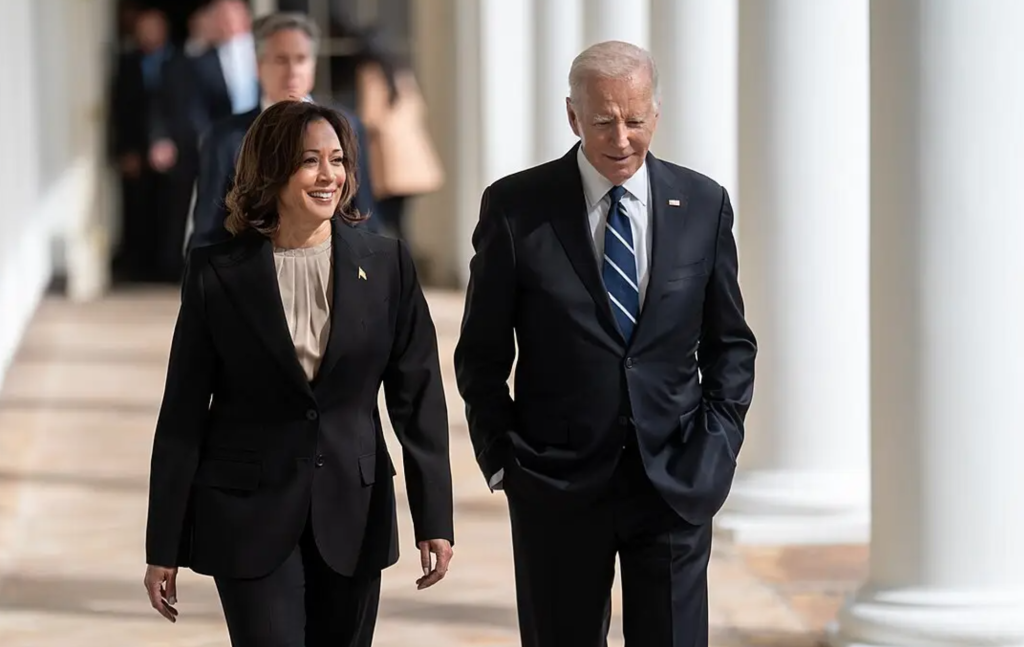

A pro-life conservative speaks up
Victory, it is said, has a hundred fathers, but defeat is an orphan. That’s not exactly true. Defeat can also seem to have a hundred fathers, as those left holding the unwanted baby try to pin paternity on someone else.
Democrats just suffered a stunning loss to a vulgar serial liar and repeated adulterer afflicted by phantom bone spurs and who is currently under indictment for mishandling classified information and for his role in sparking a riot at the Capitol. And yet, although all but the most committed MAGA cultists acknowledge those basic facts, the nation chose Donald Trump over the alternative the Democrats presented. The party faithful are now looking for answers.
Some argue that Kamala Harris was too moderate. Despite her long history of supporting progressive social policies, these theorists assert that appearing onstage with Liz Cheney was tacking too far to the center. The problem was Harris’s timidity, a failure to trumpet the cause of those oppressed by racism, sexism, speciesism, homophobia, transphobia and more. Donald Trump will return to the heavily guarded confines of the White House (rather than other less comfortable government housing) because Harris ceded hundreds of thousands of votes to Jill Stein and Cornel West. She also failed to inspire more Hamas sympathizers, Socialists, and Marxists (including, perhaps, her own estranged father) to get off the couch and vote for her.
Saner voices, however, are arguing that Harris and company became too “woke” and alienated a significant swath of socially conservative racial minorities and others who might have made common cause in this election because of the special risks Donald Trump poses. Governor Tim Walz, the gun-toting (if awkwardly) football coach (if only as an assistant), was supposed to connect with everyday people. But many may have feared the national ticket would govern more like “Tampon Tim” who, after his party achieved control over all the levers of governmental power, pushed through a sweeping progressive agenda that included making Minnesota a “trans refuge state.”
The secret ballot and the vicissitudes of polling human beings mean that no certainty will ever emerge regarding the reasons for the Democrats’ defeat, but some consensus opinion likely will. As a potentially persuadable voter put off by Trump, allow me to add my theory and anecdotal evidence to what Current writers John Fea, Christopher Shannon, and Dan Williams (to name just a few) have recently argued.
Trump’s spurning of the pro-life movement in a post-Roe world gave Democrats an opening and an option. They could have moderated on abortion and thereby diminished the gap on the issue. Trump had already moved in a pro-choice direction with his position in favor of state-by-state decisions. A promise from Democrats to protect the traditionally bipartisan Hyde Amendment (which bans most direct federal funding for abortion) would have been in line with many of their own voters and a majority of independents. Such a culture war truce, even if presented as merely a temporary one, might have bolstered the argument that protecting democracy really was a top priority.
Of course, that did not happen because abortion has become the center pole of the left’s circus tent. Instead, Democrats pressed hard on their perceived abortion advantage, promising national action through any means necessary (including abolishing the Senate filibuster), and they tried to convince voters that Trump would sign bills regulating abortion that he had publicly vowed to veto. In a postmortem interview with the New York Times, former Speaker Nancy Pelosi correctly focused on “Guns, God, and gays” as reasons for the defeat, but in a stunning quote she highlighted the vastness of the chasm on abortion when she summarized the issue as “what they call God, what we call a woman’s right to choose.”
Ironically, as Tim Carney documented in his 2019 book Alienated America, it was actually the most religious communities—think Mormons and the Dutch Calvinists of the Midwest— that were the slowest to embrace Trump. This was largely because of their strong social ties built around an adherence to traditional sexual values and preferences for leaders with godly character. These communities remained relatively unenthusiastic for Trump, but as Carney put it in a follow-up piece, by 2024 “the baseline had moved.”
In her book Red State Christians, liberal journalist Angela Danker was surprised to see a similar reticence in 2017 regarding Trump among the rank and file of pro-life activists. Many anti-abortion groups eventually bent towards him, though—before Trump stiff-armed them and stripped the GOP platform of its longstanding pro-life planks. The movement’s initial hesitancy thus became a largely unheeded prophecy.
Reaching the remaining rump of Trump-skeptical religious believers would have required that Democrats compromise on social issues, especially abortion. Emulating Joe Biden’s 2008 strategy might have been enough. In that election Biden ran for president touting his support for the Hyde Amendment and restrictions on late-term abortions—essentially the policy position of Trump in 2024. But for many Democrats the ratchet of progressivism only turns one way. “We’re not going back!” they yell, even if going back might have meant the difference between defeat and victory.
Bob Casey, a U.S. Senator from Pennsylvania and the son of a governor who was an outspoken champion for the unborn, slowly transformed from a self-proclaimed “pro-life Democrat” to voting in 2022 to enshrine abortion rights at the national level. Come 2025, he will be looking for work. Meanwhile, as the congressional districts around him on the Rio Grande turn Republican red, the last Democrat in the House to support Hyde, Henry Cuellar, keeps holding his seat despite a federal indictment and well-funded opponents challenging him from his left and right.
Such electoral anecdotes cannot prove that a more moderate stance on abortion and other social issues would have secured a win at the presidential level. To be clear, the number of states where pro-life sentiment is strong is sadly low. That was clear enough on Tuesday when the citizens of seven states (including red Missouri) voted abortion rights into their state constitutions. Florida’s abortion amendment failed thanks only to a super-majority requirement. But a vote for president is not a direct vote on abortion, and even many Democrats have often lagged behind their leaders’ exuberance for the bleeding edge of abortion politics .
Would announcing a four-year hiatus in their battle to kill Hyde have lost Democrats the actual votes of liberals repulsed by Trump? That seems doubtful, but such a tactic might have picked up an important contingent of those who were similarly nauseated by Trump but who could not stomach the Democrats’ abortion absolutism. Wooing only those Never Trumpers who were already pro-choice, or those who, like Liz Cheney, proved willing to flip on abortion, certainly didn’t work. Whether future Democrats will continue to run on the broken backs of the unborn with the same gusto as Harris is now a question on the table.
John Murdock is an attorney who writes from Texas.
I live in California and about nine of 10 Democratic Party campaign advertisements were about abortion on demand. Given that many of the “stars” in that party are from California and they are fully united on having tax-funded abortions with no limitations on when the procedures can take place, I doubt seriously that the Democrats are going to change their focus. Any pro-life Democrats (and you really are not welcome in the party, as the progressives believe you are evil) thinking that the Democratic Party is going to moderate on abortion or anything else about the Sexual Revolution are like Republicans that believe Trump really doesn’t plan to use the Department of Justice to go after his political enemies or that he won’t try to carry out mass deportations (which will be a disaster).